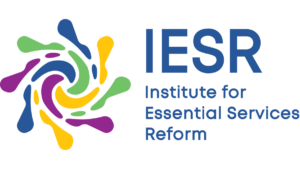Background
In response to the global consensus under the Paris Agreement, Indonesia has pledged to achieve net-zero greenhouse gas (GHG) emissions by 2060 or sooner, as articulated in its Enhanced Nationally Determined Contribution1 and the Long-Term Strategy for Low Carbon and Climate Resilience (LTS-LCCR) 20502. These frameworks outline a phased decarbonization process across all major sectors, especially energy and industry, supported by market readiness and competitiveness and its enabling policies.
According to Indonesia’s Enhanced NDC1, the country targets an emissions reduction of 31.89% unconditionally and up to 43.20% with international support by 2030, compared to the business-as-usual (BAU) scenario. The industrial sector plays a key role in achieving this target, as it accounted for around 22% of national energy-related emissions in 2021, with emissions projected to grow significantly without intervention.
The path toward industrial decarbonization involves deploying low-carbon technologies, boosting energy efficiency, and integrating renewable energy sources. This transition is particularly challenging for hard-to-abate sectors such as iron and steel, cement, fertilizer, pulp and paper, and textiles, which are among the top industrial emitters and are foundational to Indonesia’s economy. These industries face inherent technological and financial barriers to rapid decarbonization, yet they must adapt to stay competitive and compliant with emerging global norms.
Among the foundational levers for this transition is the development of a green market ecosystem, particularly through green public procurement (GPP), a critical policy instrument to stimulate demand for low-emission goods and services and to accelerate decarbonization in industry. GPP has been used globally to accelerate industrial transformation, as seen in the European Union, Japan, and South Korea 3,4. At present, Indonesia’s regulatory and institutional readiness for green public procurement remains limited. While Presidential Regulation No. 16/2018 on Public Procurement provides general guidance on environmentally friendly procurement, implementation is still at a nascent stage. The National Public Procurement Agency (LKPP) has introduced pilot efforts and guidelines for green products, but mainstream adoption across ministries, local governments, and state-owned enterprises (SOEs) is still minimal5. Many green products, such as energy-efficient equipment, low-carbon building materials, or certified sustainable inputs, are not yet prioritized in procurement decisions due to a lack of incentives, pricing preferences, technical specifications, or verifiable certification systems. This limits GPP’s ability to signal demand and stimulate low-carbon investment across industries. And without targeted support and clear incentives, many companies delay adopting low-carbon technologies that could improve competitiveness and resilience in a global market increasingly shaped by carbon standards and green trade policies (e.g., the EU’s CBAM)6.
In parallel, the economic impact of industrial decarbonization on national competitiveness is still insufficiently understood. Furthermore, it is important to explore how decarbonization of Indonesia’s industrial sector can contribute to its global economic competitiveness. The Global Competitiveness Index (GCI), developed by the World Economic Forum, evaluates a country’s long-term economic productivity through metrics such as energy infrastructure, environmental regulation, innovation capacity, and macroeconomic stability7. In 2019, Indonesia ranked 50th of 141 countries. However, it remains unexplored how industrial decarbonization could influence key indicators such as GDP growth, electricity access, clean technology adoption, and innovation ecosystems that directly affect Indonesia’s GCI ranking.
Simultaneously, industries are reluctant to invest in green technologies due to perceived high costs and uncertain returns. Addressing these knowledge gaps, the use of Cost-Benefit Analysis (CBA) becomes a vital tool to support technology adoption. By quantifying both the economic and environmental trade-offs, CBA enables industries and policymakers to:
- Identify cost-effective decarbonization technologies;
- Compare short-term costs with long-term efficiency gains, risk mitigation, and competitiveness benefits;
CBA also plays a strategic role in aligning supply-side industrial readiness with demand-side market signals. For example, if public procurement processes begin requiring low-carbon construction materials or certified sustainable inputs, industries need a clear understanding of the economic rationale and competitive advantage of meeting those requirements 8,9.
Ultimately, this study aims to provide empirical evidence that industrial decarbonization is not a barrier to business performance or national economic growth. Rather, it can unlock new market opportunities, particularly in the green product segment and strengthen Indonesia’s global positioning as a competitive and climate-resilient economy. By analyzing the intersection of policy readiness, economic competitiveness, and technology investment through tools such as GCI benchmarking, investment modeling, and CBA, this study will offer practical insights for government and industry alike. It will also help identify green industrial segments that Indonesia can scale based on domestic resource advantages and global demand trends such as sustainable construction materials, energy-efficient technologies, or low-carbon manufacturing inputs.
All required documents can be downloaded through this link (StatementLetterConsultant) and the proposal submissions will be expected to be received until 22:00 Indonesian Western Standard Time (WIB, GMT+0700) on Wednesday, June 11 2025, and should be addressed to faricha@iesr.or.id (Industrial Decarbonization Coordinator for Technology and Policy, IESR) with cc to: juniko@iesr.or.id (Industrial Decarbonization Manager IESR). Please include “RFP Response – Economic Impact Analysis of Industrial Decarbonization in Indonesia” in the email subject line. All proposals must be submitted by an official organization or a designated representative of the organization.



